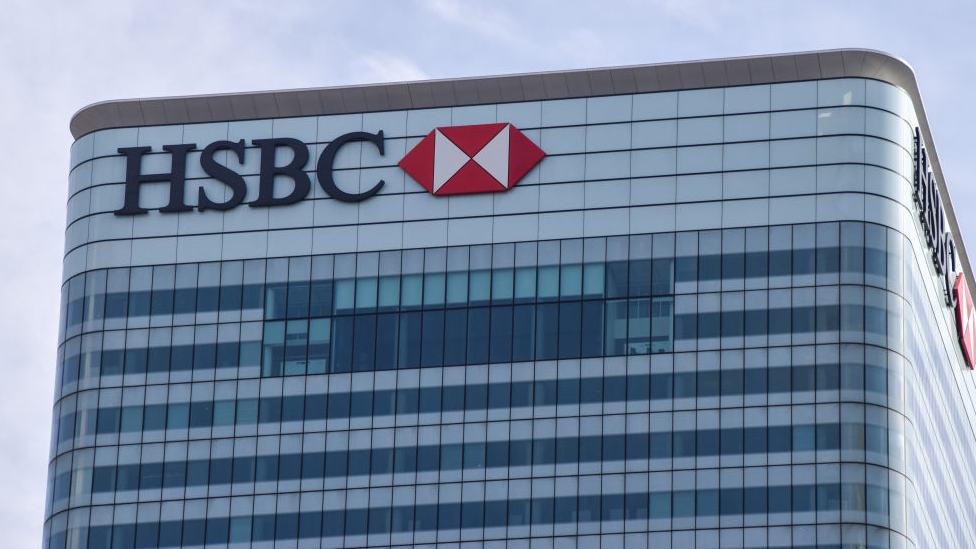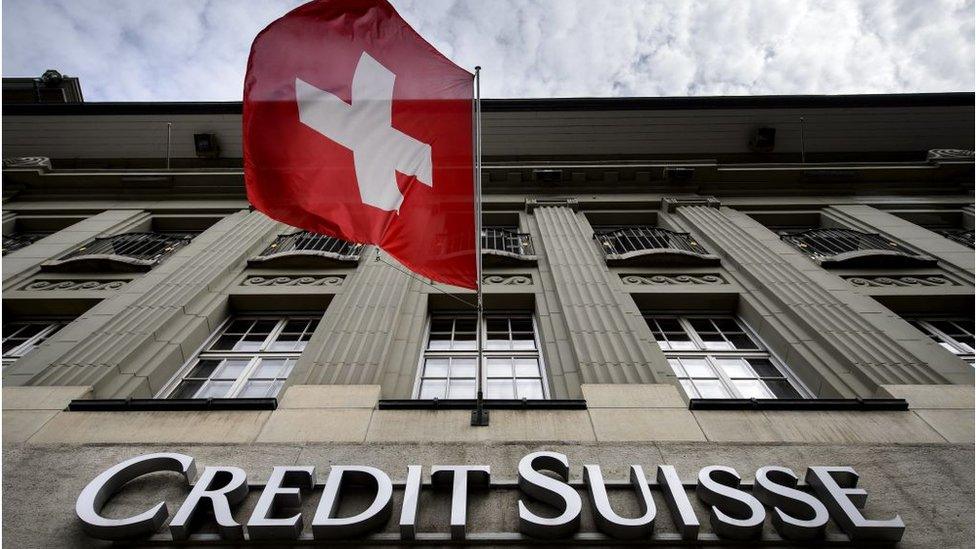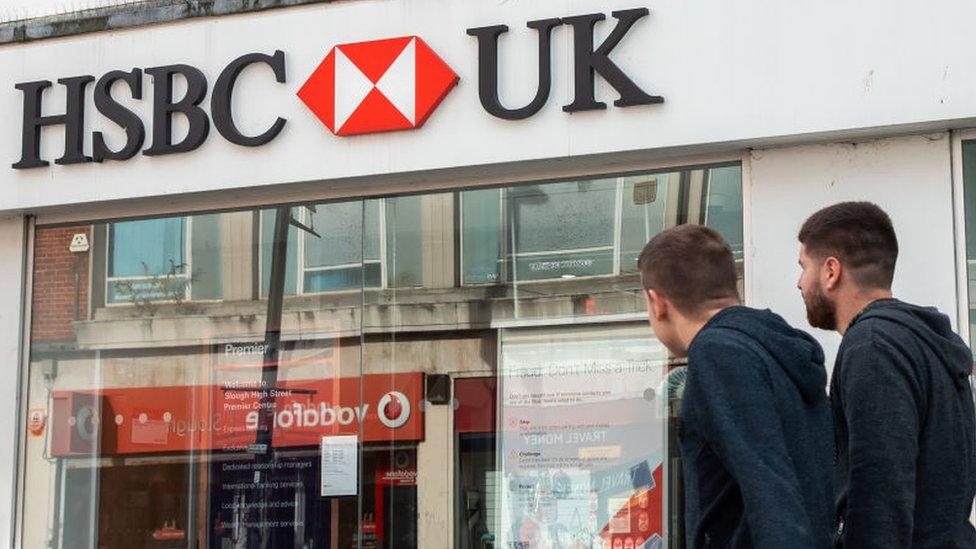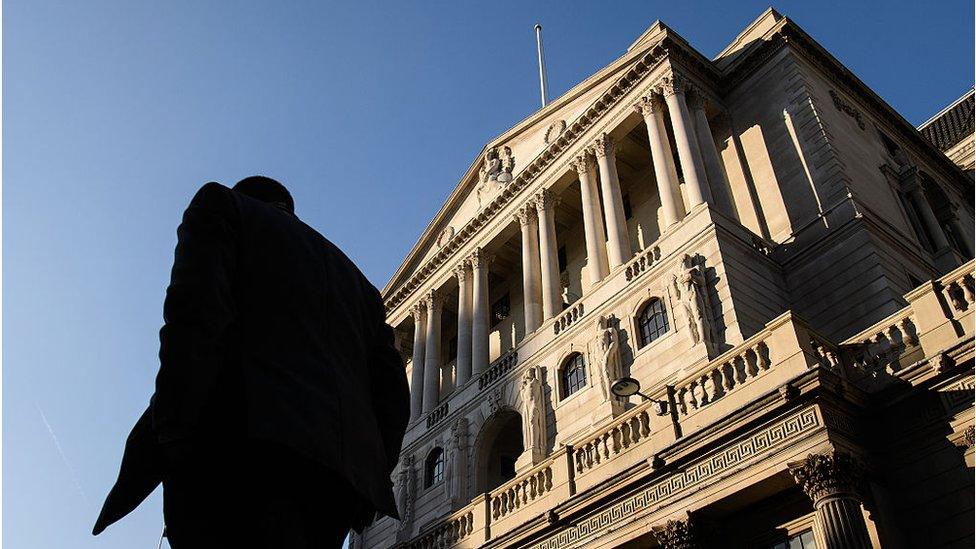HSBC foils plan by major investor to break up bank
- Published

HSBC is headquartered in the UK
HSBC has fought off an attempt by its biggest shareholder to break up the bank during a frequently tense annual general meeting.
Chinese insurer Ping An has been trying for more than a year to split the bank.
On Friday it failed to gain the backing of any other major shareholder as investors voted to reject the proposal.
HSBC chairman Mark Tucker said the result "draws a line" under a long-running debate about the bank's structure.
Despite being headquartered in London, the large majority of HSBC's profits are made in Asia.
Ping An, which holds an 8% stake in HSBC, wants the lender to separate out its Asian business.
It argues that the bank's profitable Asia operations are subsidising other parts of the bank that are not performing as strongly. Splitting HSBC would also set it free from the requirements of UK regulators.
Ping An and Ken Lui, an individual Hong Kong-based shareholder in HSBC, needed to secure 75% of all votes cast at the AGM to force through the split.
They failed to get those numbers, with no other major institutional investor backing the plan.
Mr Tucker told the AGM a break-up of the bank would undermine its global strategy, and would be both risky and costly.
"It would not be in shareholders' interests to split the bank," he told the AGM in Birmingham, which was frequently interrupted by climate change activists who claim HSBC is not doing enough to reduce its financing of polluting industries and businesses.

Climate change activists targeted HSBC's annual general meeting in Birmingham
At the meeting, Mr Lui vowed to fight on with the break-up plan, saying he would keep pressure on HSBC's management and would lobby the bank's many small shareholders in Hong Kong.
It is not clear what Ping An's next step will be but there are bigger factors at play beyond making a return on its investment.
Ping An is partly owned by the Chinese state and, according to some analysts, could be representing Beijing's political aims as much as its shareholders' financial interests.
Hong Kong is by far China's most important financial hub and HSBC is the centrepiece institution.
Some argue that to Beijing, the idea of simply leaving the city's most valuable asset in Western hands could be a risk that is too big to take.
The example of Russia's economic isolation following the invasion of Ukraine is a case in point.
Should a similar geopolitical crisis emerge involving China - not an impossibility given the tensions around Taiwan and the South China Sea - having a grip on one of Asia's top banks will be vital.
In this sense, HSBC is dealing with an existential crisis that dates back to its founding in Hong Kong under British rule.
For most of its 158-year history, the Hong Kong and Shanghai Banking Corporation - as it was originally known - has had a long-distance relationship with the UK.
In fact, HSBC only became a major UK High Street player in the 1990s, when it bought Midland Bank and moved its headquarters to London in 1993. To this day, HSBC even prints the bank notes in Hong Kong.
"There is a jarring gap between HSBC's centre of gravity in Hong Kong and its subservience to regulators in Britain," says Steve Vickers, a corporate risk consultant based in Hong Kong. "This is an accident of history and a remnant of the colonial era."
A small taste of this came in 2020, when the Bank of England directed HSBC and other British lenders to stop paying out dividends to shareholders because of the pandemic.
This enraged ordinary shareholders in Hong Kong, who own about a third of HSBC's shares and many of whom rely on the payments for their retirement funds.
From the Chinese mainland perspective, it was a simple but stark illustration of the power of officials on the other side of the world. Asia may generate the money, but ultimately London calls the shots.
This is not a situation either Ping An or China wants to be in. It may explain why Ping An is pushing HSBC so hard and so publicly with the kind of shareholder activism that is normally associated with Western investors.
"A more assertive China is now unafraid to project itself in the international business arena," says Steve Vickers. "But they have to tread very carefully with HSBC - the stakes are high."
- Published4 May 2023

- Published2 May 2023

- Published28 March 2023

- Published13 March 2023
